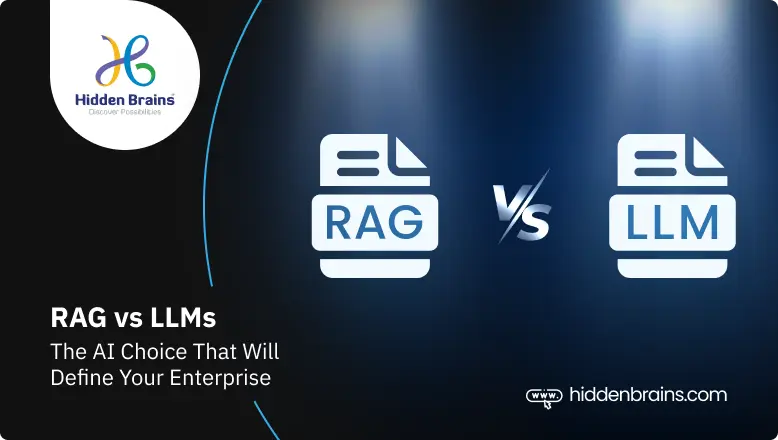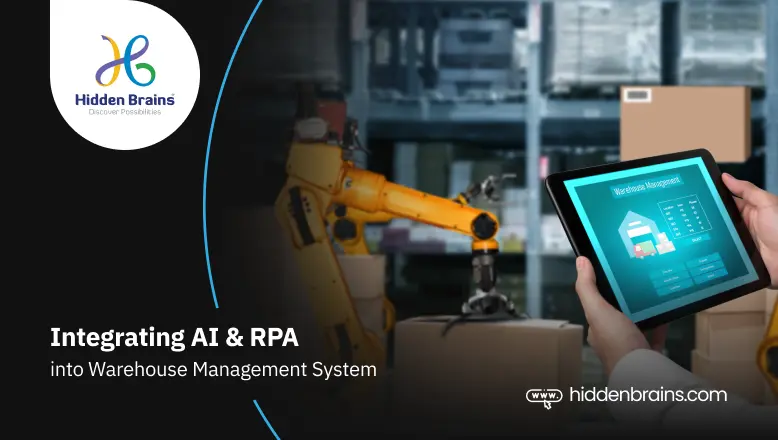With more and more companies incorporating artificial intelligence (AI) into their businesses, it’s becoming increasingly important to ensure that everyone understands its benefits and limitations and how it will impact the business world at large.
In this article, we’ll discuss how artificial intelligence solutions are transforming businesses so far, how companies are utilizing AI today, and what the future of AI holds for businesses in the coming years.
Artificial Intelligence: Statistics & Overview
- The Global AI market is expected to reach a $190.61 billion market value in 2025.
- The forecasted AI annual growth rate between 2020 and 2027 is 33.2%.
- The global AI chip market revenue is expected to reach $83.25 billion by 2027.
- By 2030, AI will steer to an estimated $15.7 trillion, or a 26% increase in global GDP.
- AI implementation challenges: Staff skills (56%), the fear of the unknown (42%), and finding a starting point (26%).
What is Artificial Intelligence?
Artificial intelligence (AI) is form of computer science that focuses on creating intelligent machines that can work and react like humans. AI has already begun transforming many industries, including healthcare, finance, manufacturing, and logistics.
Businesses use AI to automate tasks, improve customer service, and make better decisions. As AI continues to thrive and evolve, it will likely have an even bigger impact on businesses and society.
For example, as the capability for autonomous vehicles grows, the demand for this new form of transportation increases. Driverless cars could drastically reduce car accidents and deaths due to driver error.
In addition, AI-powered computers could eventually lead to companies needing fewer employees who are paid higher wages since they don’t need someone in the office at all times to monitor their business.
The result would be cheaper goods and services with increased safety, potentially leading to lower prices for consumers while freeing up more people from having to work more than one job to pay their bills.
A Brief History of Artificial Intelligence
The term artificial intelligence dates to 1956, but the concept of creating machines that can think like humans have been around for centuries. Early attempts at AI focused on creating programs that could simulate human intelligence, but it wasn’t until the late 20th century that true AI began to emerge.
Thanks to advances in computer science and artificial neural networks, AI has come a long way in recent years. Businesses are now using AI for customer service, marketing, and product development tasks.
Benefits of AI for Business
1 Costs Less
AI can help businesses cut costs in several ways. For example, it can automate tasks that would otherwise need to be completed by human employees, and this can free up time and resources that can be used elsewhere in the business. Additionally, AI can help improve efficiency and accuracy in various business areas, such as customer service, accounting, and marketing. These can lead to increased revenue, improved productivity, and greater profits.
2 Creates Value from Data
To be competitive, businesses need to make data-driven decisions. However, manually analyzing all relevant data is time-consuming and often leads to suboptimal results. This is where artificial intelligence (AI) creates a profound impact: businesses can save time and make better decisions by automating the data analysis process.
3 Requires Less Expertise
One of the key benefits of AI for businesses is that it requires less expertise. This means that enterprises can save money on training and development costs.
Additionally, companies can use AI to automate tasks that would otherwise require human expertise, such as customer service or data analysis. This can help employees to focus on more critical tasks and improve efficiency.
4 Improves Efficiency
One of the main benefits of AI is that it can help improve efficiency within a business. This is because AI can automate tasks which human employees would traditionally carry out.
For example, if a company receives a high volume of customer enquiries, an AI chatbot could be used to handle the initial contact with customers. This would free up time for human employees to carry out other tasks within the business.
5 Lowers Risk
Risk is always a significant concern for businesses. After all, no company wants to make a costly mistake that could have easily been avoided. This is where AI comes in. By analyzing data and patterns, AI can help businesses make more informed decisions that lower the risk of potential losses.
6 Improved Accuracy
Increased accuracy is one of the most essential benefits businesses can reap from implementing AI. With the help of machine learning, companies can gain insights from data that would otherwise be difficult or impossible to glean. This is because machine learning algorithms can make sense of large and complex data sets.
As a result, businesses can make more informed decisions based on actual data rather than guesswork.
7 Improved Decision Making
In data-driven decision-making, AI can help businesses increase accuracy by providing more reliable and accurate data. This is because AI is not biased like humans can be so that it can provide more accurate insights. In addition, AI can help identify patterns that humans may not be able to see.
Future of AI & Impact on Industries
Artificial intelligence (AI) is already starting to significantly impact businesses across a wide range of industries.
Retail
In the retail sector, AI is being used to personalize customer experiences, for example, by recommending products that match their individual preferences. AI could be used even more extensively to automate future stock management and pricing tasks.
In the financial sector, AI is used to detect fraud and money laundering and make automated trading decisions.
Healthcare
Artificial intelligence is making a big splash in the healthcare industry. Here are a few ways AI is being used to improve patient care.
- Doctors can spend more time on their patients rather than on paperwork.
- Computers help interpret medical scans, leading to quicker diagnosis.
- Personalized treatment plans can be tailored for each individual’s needs.
- Virtual assistants and chatbots can monitor blood pressure, heart rate, and other vitals from home or hospital bedsides.
These advances reduce mistakes due to human error and provide easier access for those who need it most.
Manufacturing
One industry that is being disrupted by artificial intelligence is manufacturing. Robotics and other forms of automation are increasingly used to boost factory efficiency and productivity.
But AI is also being used more creatively, such as developing new materials and products or designing more efficient production lines. In the future, AI could even be used to create entire factories that can operate with minimal human supervision.
Transportation & Logistics
It’s no evident that the transportation and logistics sector is booming. In fact, according to a recent study by PwC, the industry is expected to grow by $1.3 trillion by 2030. With this growth comes an exponential demand for efficiency and accuracy. This is where AI comes in. Some of the areas within transportation and logistics that can be improved through AI include:
- Finding new ways to optimize fleet operations.
- Reducing labor costs.
- Improving customer service.
- Providing remote monitoring & support.
- Detecting fraud (including fuel theft).
Automotive
AI is increasingly important in the automotive industry, from enhancing safety features to streamlining the manufacturing process. In the future, AI will likely play an even more significant role in making cars more autonomous and reducing traffic congestion.
Financial Services
Artificial intelligence is used extensively in the financial services industry. Banks use AI for fraud detection, customer service, and even to improve loan approval processes. AI can help financial institutions save time and money while providing a better customer experience.
For example, many banks use AI systems that check accounts and notify users if they notice unusual activity. One famous example of this system is BankBot which monitors Twitter to identify potential banking scams.
The ROI on these types of projects can be seen very quickly with increased account holders staying with the bank and new account holders opening an account, as well as more extensive deposits per account holder.
Entertainment
In the entertainment industry, AI can be used for automatic subtitling and closed captioning, which can help make videos more accessible to a broader audience.
AI can also create realistic 3D animations and graphics, which can be used in movies, video games, and other visual media.
Additionally, AI can be used for music composition and sound design, creating more realistic and emotive music.
Retail
AI can be used in retail to help with pricing, stocking shelves, customer service, and fraud prevention. In terms of pricing, AI can help identify patterns and trends to optimize prices and help retailers stay competitive.
Regarding stocking shelves, AI can be used to track inventory levels and predict when items need to be restocked. And for customer service, AI can provide recommendations, personalized discounts, and automated support.
Conclusion
Artificial intelligence is the new ahead for industries. Business leaders must leverage the features of artificial intelligence that will transform their operations, help gain market traction, gain competitive advantages and consolidate workforce strength.































































































![Sales & Distribution [Oil & Gas] Sales & Distribution [Oil & Gas]](https://www.hiddenbrains.com/blog/wp-content/themes/blankslate/assets/images/sales_and_distribution-icon.74d08193.svg)

![Fluid Terminal Management [Oil & Gas] Fluid Terminal Management [Oil & Gas]](https://www.hiddenbrains.com/blog/wp-content/themes/blankslate/assets/images/fluid_terminal_management-icon.4b3a27a4.svg)































![Sales & Distribution [Oil & Gas] Sales & Distribution [Oil & Gas]](https://www.hiddenbrains.com/blog/wp-content/themes/blankslate/assets/images/sales_and_distribution-icon.74d08193.svg?1.0.0)
![Fluid Terminal Management [Oil & Gas] Fluid Terminal Management [Oil & Gas]](https://www.hiddenbrains.com/blog/wp-content/themes/blankslate/assets/images/fluid_terminal_management-icon.4b3a27a4.svg?1.0.0)
























































































































































































